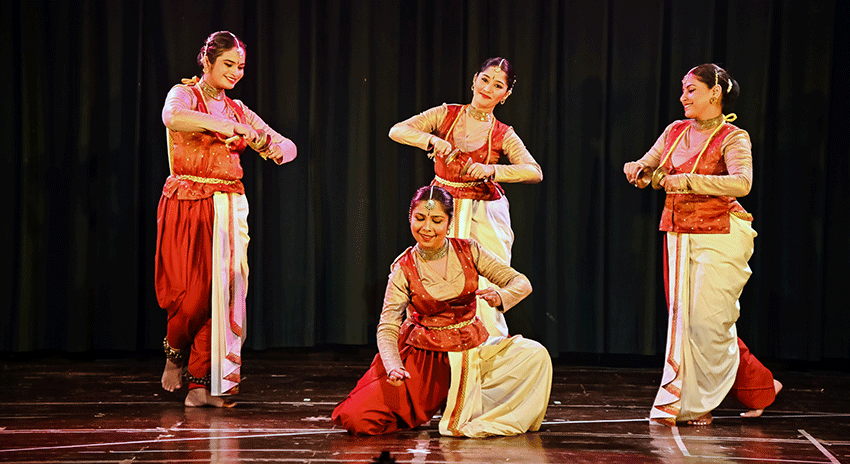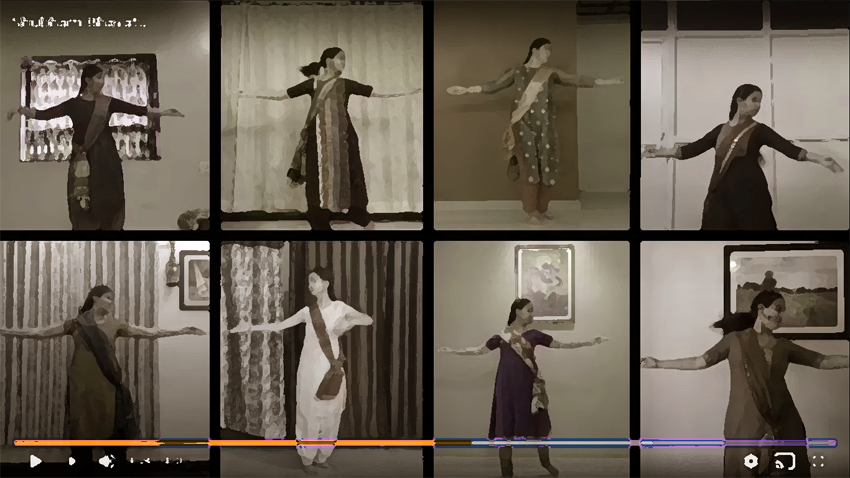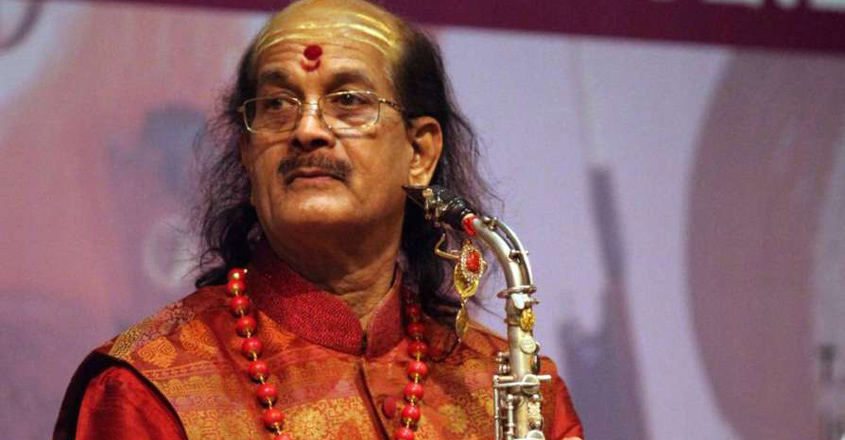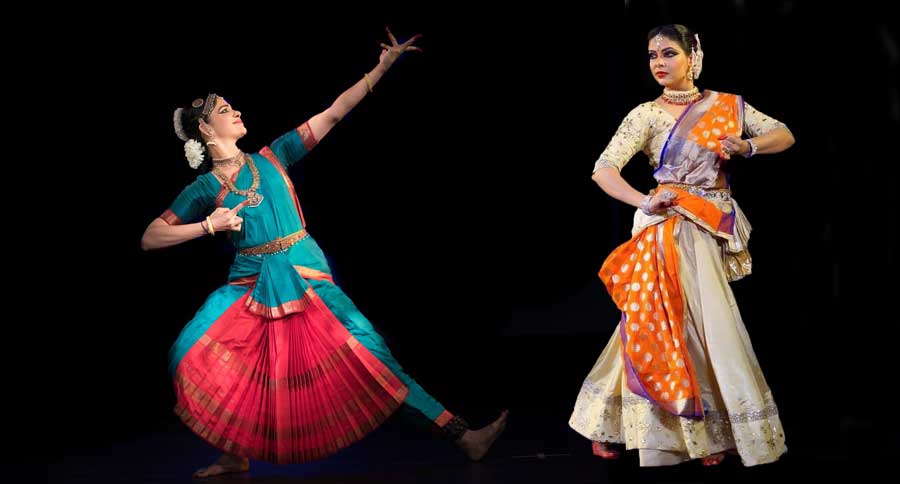ClassicalClaps had the privilege of conducting an insightful interview with Gauri Pathare, a distinguished Indian classical vocalist. Pathare’s musical journey commenced under the tutelage of Pt. Gangadharbuwa Pimpalkhare of Kirana gharana, followed by invaluable guidance from the late Pt. Jitendra Abhisheki and Pandita Padmatai Talwalkar for several years. In 2010, she embarked on Jaipur gharana training under the esteemed Pt. Arun Dravid, whose influence, along with her training in the Jaipur-Atrauli, Gwalior, and Kirana gharanas, has shaped her unique gayaki style. Gauri’s quest for knowledge has also led her to explore voice culture techniques under Ustaad Syeeduddin Daagar, a renowned Dhrupad Dhamar singer, further enriching her musical expression. Discover the captivating insights of this exceptional artist as she shares her journey and experiences in our exclusive interview below:
Q. You have had an extensive journey as a classical vocalist, performing at prestigious festivals in India and abroad. How has this exposure shaped your musical style and influenced your growth as an artist?
A. The musical style or personality of your music is shaped by your personal Sadhana at home when you are exploring yourself with the help of knowledge acquired from talim from gurus. This is an in-worded process. What gets shaped up on the Dias and events is your own personality as a performer. What gets developed on Dias is your rapport with your audience, your understanding of the character of your audience, your assessment of your own output and limitations, and your ability to communicate and even manipulate the audience. It’s an outward process exactly opposite to the in-worldly process of Sadhana. A successful artist balances both these processes in life very well.
Q. Winning the All India Radio competition is a remarkable achievement. How did this recognition impact your career and contribute to your artistic development?
A. ahh !! ![]() It’s one of the accolades I received when I was a college-going, young student. All such accolades certainly add to your confidence and enthusiasm. Nothing more.
It’s one of the accolades I received when I was a college-going, young student. All such accolades certainly add to your confidence and enthusiasm. Nothing more.
Q. As the vocal accompaniment to Pt. Suresh Talwalkar for his taal maala concerts, what valuable lessons did you learn from this collaboration? How did it enhance your understanding of rhythm and improvisation?
A. The three years span when I got to work with him on his project was a great experience and a major learning curve. It taught me the at most importance of laya Abhayas and what he meant by sthula and sukshma laya. This is helping me with my music every day.
Q. Apart from your musical pursuits, you have also shown interest in cooking and appeared on cookery shows. How do you find a balance between your two passions, and do you see any connections between music and culinary arts?
A. Food creation is a very very important, subtle and personalized part of creativity. Even when the recipe is the same, don’t you recognise a dish when it’s made by your mom and someone else? ![]() Creating recipes needs not only ingredients and methods but food also needs sound mental and physical state the cook must have a warm heart and healing energy in his or her intentions while cooking food. It’s very very meditative. So I think many artists are good cooks.
Creating recipes needs not only ingredients and methods but food also needs sound mental and physical state the cook must have a warm heart and healing energy in his or her intentions while cooking food. It’s very very meditative. So I think many artists are good cooks.![]()
Q. You have conducted classical music workshops overseas. What motivated you to share your knowledge and expertise with international students, and how do you perceive the impact of these workshops on promoting Indian classical music globally?
A. Indian Classical Music is one of the effective ways to help the listeners peep worldly into themselves. Indian Classical Music is the way towards peace, calm and a stable state of mind. This is the most powerful tool towards introspection and finding control over your emotions. And the world needs any and all such tools that show them the power of truth and peace of love. We artists are privileged that we are chosen for propagating Indian Classical Music and so it gives me immense pleasure to do so.
Q. Being featured on Australian radio for your live performances is quite an accomplishment. How do you think exposure through radio broadcasts contributes to the dissemination and appreciation of classical music?
A. We say वसुधैव कुटुम्बकम् so how does it matter to be broadcasted from any point? It’s all about reaching out to the audience and propagating Indian Classical Music.
Q. Could you share any challenges you encountered while performing in different countries and how you overcame them? Did these experiences bring about any unexpected growth or inspiration in your musical journey?
A. Yes! Earlier times we would have to take the acoustic Tanpura in fibre cases while travelling abroad as our music without acoustic Tanpura sound is not possible. This exercise was very difficult as carrying a fragile Tanpura across oceans and praying to God that customs clearance and porters will not break it was a nightmare for the artist. But with time acoustic Tanpura apps are available for download and it’s a boon. This is a major value addition for us.
Q. How do you adapt your music to resonate with diverse audiences and cultural backgrounds when performing in different countries? Are there any specific strategies you employ to create a connection with the listeners?
A. As I said before, Indian Classical Music is an in-worded statement of swar and laya and has no basis of regional languages essentially needed to convey its meaning. Languages and forms certainly add to the charm of Indian Classical Music and create different flavours. But then internalising your senses using the SOUND is Indian Classical Music’s main purpose. So, some good use of local dialect and references here and there are certainly used by the performer to pep up or connect the audience but the main impact is of the sound only. Either the impact is there or it will never be there, no matter what you do with local dialects or references while you perform.
Q. With a degree in Computer Science and a background in IT, you are pursuing a career in Music. Do you see any intersections between the two fields?,
A. Absolutely yes! ![]() . First of all, being divergent enhances your experience of life and makes you a better player in life. Technical skills and analytical skills learnt in my IT career certainly help me in music and in life too.
. First of all, being divergent enhances your experience of life and makes you a better player in life. Technical skills and analytical skills learnt in my IT career certainly help me in music and in life too.
It also broadens our perspective and makes us more confident while exploring unknown places in music Sadhana as well as unknown allied branches of music applications.
Q. Can you recall a memorable performance or moment from your career that holds a special place in your heart? What made it so significant to you?
A. Each performance is both a lesson as well as a festive experience for me. And each one is unique. I have stopped looking back and thinking nostalgic about concerts as the moment you lived in past is now a stale experience. It can’t be repeated and even if you could, it’s stale. Now only a new, fresh moment which is unique and thus different from the one you enjoyed in past, will bring you new joy. So better to work for it.
Q. In the realm of Indian classical music, preserving and promoting the art form’s rich heritage is crucial. How do you ensure that traditional elements are preserved while still incorporating contemporary influences in your performances?
A. Indian Classical Music khyal style itself is a volatile art form, unlike Dhrupad form. So after Keeping the principles of gayaki and the grammar of ragas intact, one can and one needs to improvise and bend rules to create art. Not breaking but bending the rules is the definition of art for me. So as long as your understanding of fixed principles and variable values is consistent, you can take unlimited freedom in a very strict fence of Indian Classical Music form. This is the strength and beauty of Indian Classical Music.
Q. Have you collaborated with artists from other genres or cultural backgrounds? If so, how have these collaborations influenced your artistic expression and expanded your musical horizons?
A. I have not collaborated much with other genres. Once I collaborated with a jazz group in Australia. It was a phenomenal experience for me.
Q. As a seasoned artist, what advice would you give to aspiring classical musicians who are embarking on their own musical journeys? What are some key qualities or skills they should focus on developing?
A. Be divergent! Learn all skills you have an aptitude for. That will help you do better time, energy, and resources management and enhance your productivity and personality. Music is a long and constantly ongoing process and so keep learning and keep practising. Finally, Let music choose you as a professional musician then you self-proclaim.
Q. What are your future aspirations and goals as an artist? Are there any upcoming projects or collaborations that you are particularly excited about?
A. Doing deeper Sadhna and exploring unique places in music, teaching students and creating meaning to my existence is the final goal.
Q. Lastly, how do you think technology has influenced the teaching, performance, and appreciation of Indian classical music today? Are there any positive or negative impacts you have observed?
A. Technology has enhanced our knowledge and ability to improve sound quality and faster connectivity. However, this is no substitute for Sadhana and the sound mastered by Sadhana is unparalleled. Technology can just enhance it but no technology can create sonorous sound with any healthy sound input added to it.
As we conclude this interview with the remarkable Gauri Pathare, her passion for Indian classical music shines through her training and diverse influences. Her ability to blend the Jaipur, Gwalior, and Kirana Gharana gayaki into her own distinct style is a testament to her artistic prowess. We are grateful to Gauri for sharing her invaluable insights and experiences with us. Her dedication to honing her craft and exploring various voice culture techniques is truly inspiring. We hope that this interview has provided a deeper appreciation for the rich and diverse world of Indian classical music.
We invite you, our readers, to share your feedback on this insightful interview with Gauri Pathare. We value your thoughts and opinions on her journey, influences, and unique style of Indian classical music. Feel free to leave your comments and reflections below, as we would love to hear from you. Your feedback helps us continue to bring you engaging content and celebrate the extraordinary talents of artists like Gauri.










